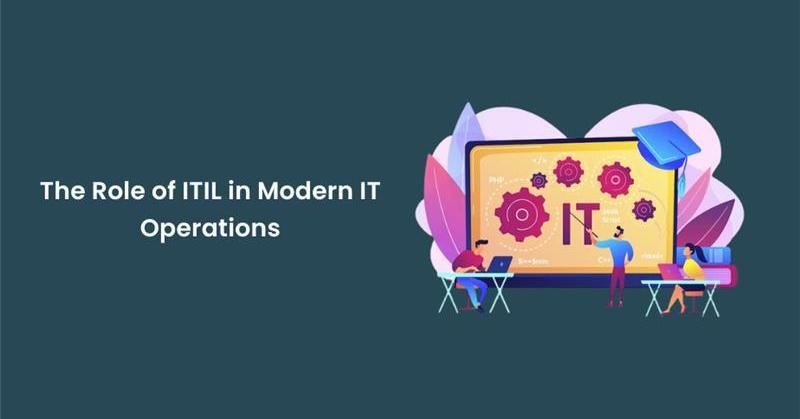IT infrastructure significantly affects a company’s efficiency, productivity, and overall success. Organisations want to simplify their processes and improve service delivery as IT systems become more complicated. The Information Technology Infrastructure Library (ITIL) is crucial in this situation. A widely used framework called ITIL acts as a roadmap for IT workers worldwide, helping them to manage and improve IT services. The importance of ITIL in contemporary IT operations, the advantages of earning an ITIL Certification, and What is ITIL will all be covered in this blog.
What is ITIL?
Information technology service management (ITSM) best practices are outlined in a comprehensive framework called ITIL, which stands for Information Technology Infrastructure Library. The British government created it in the 1980s to standardise and boost the effectiveness of IT service delivery. The most recent version of ITIL, known as ITIL 4, has undergone several adjustments to accommodate the shifting IT world.
The framework includes a collection of ITSM principles, ideas, and procedures intended to assist organisations in matching their IT demands with their business requirements. It encourages a customer-centric strategy emphasising high-value services while advancing service operations and tactics.
The Role of ITIL in Modern IT Operations
Maintaining a streamlined and dependable IT infrastructure is essential in today’s fast-paced and fiercely competitive company climate. Here are some examples of how ITIL is crucial to contemporary IT operations:
- To develop, deploy, and manage IT services effectively, organisations can use ITIL, which offers a systematic approach to ITSM. Businesses may ensure that their IT services align with business goals and offer value to their clients by adhering to ITIL’s best practices.
- ITIL strongly emphasises incident management, assisting IT teams in quickly responding to and resolving problems. This lessens interruptions, reduces downtime, and raises user satisfaction levels generally.
- ITIL’s change management practices make the regulated deployment of changes in IT environments easier. By following these recommendations, organisations may lower the possibility of mistakes and system breakdowns brought on by changes, hence maintaining stability and dependability.
- An active approach to problem management is encouraged by ITIL. It entails discovering the underlying causes of persistent occurrences and implementing long-lasting fixes to stop such interruptions.
- SLAs, which establish explicit expectations between IT service providers and their customers, are defined and managed with the aid of ITIL. Businesses may improve customer satisfaction by providing consistent, high-quality services by adhering to SLAs.
- Continuous service improvement, or CSI, is one of the main tenets of ITIL. This calls for routinely evaluating IT services, identifying potential improvement areas, and implementing small improvements to optimise service delivery.
ITIL Certification and Its Benefits
IT workers and organisations can benefit from earning an ITIL certification in several ways:
- With a standardised skill set provided by ITIL certification, professionals may successfully contribute to IT service management and advance their career prospects.
- Internationally renowned and regarded, ITIL. Their ITIL certification may see an individual’s dedication to best practices and superior IT service.
- Professionals with ITIL training may optimise IT operations, increasing productivity and lowering operating expenses.
- Organisations may offer services that align with customer demands by implementing ITIL principles, improving service quality and customer happiness.
- An ITIL certification distinguishes applicants in a competitive job market and gives them a competitive edge when looking for opportunities in IT service management.
Conclusion
ITIL plays a vital role in modern IT operations by providing a comprehensive framework for IT service management. Its customer-centric approach and focus on continual improvement enable organisations to deliver efficient and high-quality IT services. Obtaining an ITIL certification empowers professionals with valuable skills and industry recognition, contributing to their personal growth and benefiting their organisations. Embracing ITIL principles is essential for businesses looking to stay competitive and thrive in today’s technology-driven world.
